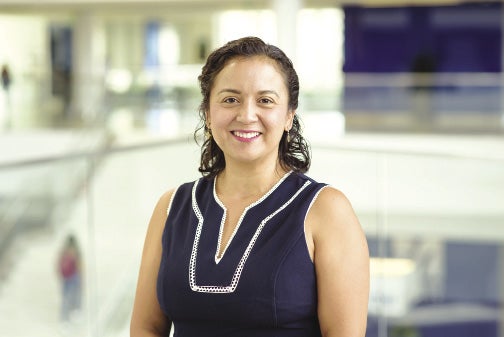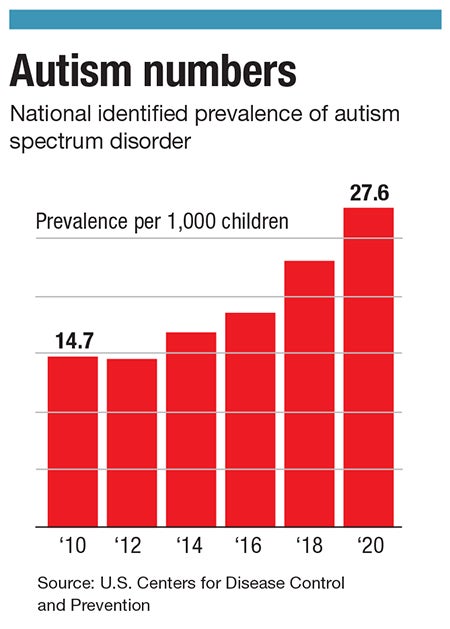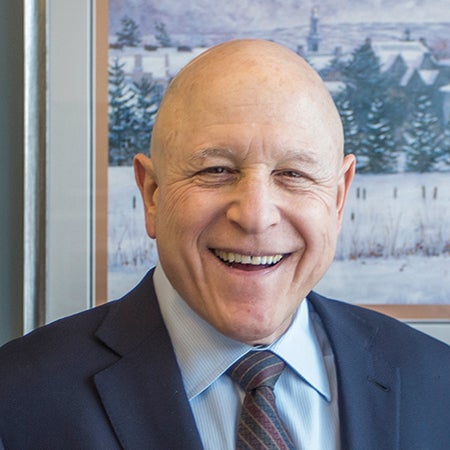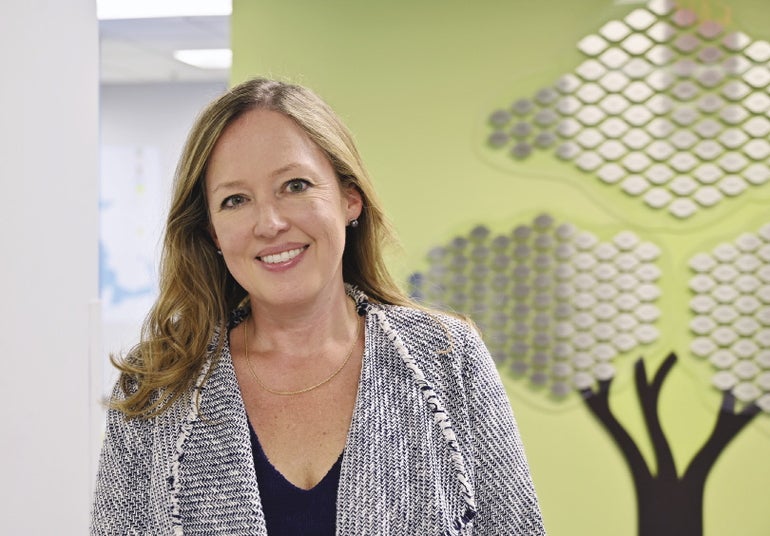After 48 years with its founder as CEO, The New England Center for Children has a clinician as its new leader.
Get Instant Access to This Article
Subscribe to Worcester Business Journal and get immediate access to all of our subscriber-only content and much more.
- Critical Central Massachusetts business news updated daily.
- Immediate access to all subscriber-only content on our website.
- Bi-weekly print or digital editions of our award-winning publication.
- Special bonus issues like the WBJ Book of Lists.
- Exclusive ticket prize draws for our in-person events.
Click here to purchase a paywall bypass link for this article.
Jessica Sassi thinks Vincent Strully, Jr. is a visionary.
Stepping into his shoes as CEO of The New England Center for Children, which Strully founded and ran as CEO since 1975, is a massive undertaking for the clinician-turned-executive at the autism education and research nonprofit, but it’s one Sassi was hand-picked and prepared for.
When Sassi officially took over as CEO at the end of August, it was after completion of a three-year succession plan and more than 10 years at NECC under her belt.
While she began her career at NECC as a clinician, she climbed the ranks of more and more senior administrative roles, becoming the clinical director along the way. Running a massive organization requires business chops, but NECC values the clinical experience, too, as it’s the root of all work at the organization.
“It was always more than just a business role,” Strully said of the CEO position.
Sassi became the executive director of NECC’s Southborough campus, the flagship institution, after earning her Ph.D. in behavior analysis from the University of Florida. A clinician by training and at heart, her goal is to position NECC to solve the educational challenges in the autism education world, she said.
“I am a diehard behavior analyst,” she said.
NECC makes use of applied behavioral analysis at its Southborough campus, in its research, academic programs, and beyond. The method recognizes each individual student with autism has individual needs, and educators must tailor their approaches, said Rocío Rosales, associate professor and program coordinator for applied behavior analysis and autism studies at UMass Lowell.

“Behavioral analysis leads us to be able to come up with a treatment plan to address what the behavior looks like and why it is happening,” said Rosales. Different behaviors serve different functions for different individuals with autism.
Using behavioral analysis as an approach requires regular reevaluation. “The approaches we take are constantly changing,” said Rosales.
Adapting to change and taking a strategic approach is a skill Sassi will continue to use constantly as she assumes the top role of the international operation.
Long-term succession plan
It wasn’t a foregone conclusion that someone from within NECC would be the next CEO, but more and more, Strully and the board realized in order to handle the scope of the organization, someone from the inside would be the best fit to take on all that NECC encompasses, Strully said.

NECC’s operations include a day school, a residential program, a classroom model for use within public schools, a consulting practice, a research center, onsite graduate degree programs, and a technology division. The center is one of the 50 largest employers in Central Massachusetts and has trained nearly 2,000 in research training and applied behavioral analysis degrees. Its workforce hovers at 1,200, and its annual budget is regularly more than $100 million. NECC operates or consults in 13 countries, serving 12,000+ students worldwide, according to NECC, with a full school in Abu Dhabi, the capital of the United Arab Emirates.
“It’s a lot to take on,” Strully put simply.
Strully likens NECC to a teaching hospital on par with Mayo Clinic in Minnesota and has always put a premium on professional development for all levels of staff members. Sassi is the second-ever CEO at the organization, but both she and Strully feel confident she is prepared to take on the role.

While she had a lot of time to prepare, it was not an easy few years to learn the ropes, Strully said.
NECC, unlike typical or even boarding schools, cannot send many of its students home ever, Sassi said. Throughout the COVID-19 pandemic, the school did not close once as it dealt with a slew of challenges.
“It turned into an opportunity to learn to respond to a serious crisis,” Sassi said.
The pandemic coincided or caused co-occurring challenges, with a resignation boom in special education and challenging retention figures across the industry that did not spare NECC. As Sassi steps into the CEO role, the retention challenges have mostly abated, with staff retention at the same roughly 90% level as before the pandemic, she said.
The future
Next on the agenda is reexamining the entire strategic plan, Sassi said, which was developed shortly before the COVID-19 pandemic.
“Questions have to be answered differently now,” Sassi said.
After 48 years at the helm of the organization, Strully officially retired as CEO in August. As part of the succession plan, he will remain on as a consultant for the beginning of Sassi’s tenure. She is the last in a series of generational changes at the C-suite level, said Strully, as multiple chiefs and directors who ran the center with him for decades have retired.
Even with those changes, Sassi said she feels supported as she takes over.
“I don’t see myself as alone,” she said, but rather as part of the next generation of capable leaders.
Strully sees Sassi as a role model for staff, especially to female staff who make up the vast majority of the organization, he said. With the reins of NECC in her hands, Sassi has the potential to empower the next generation of clinicians and leaders within the organization and beyond.
“She will be a superstar woman leader in our field,” said Strully.

